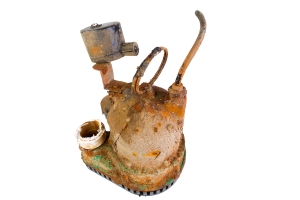A LOOK AT THE COMMON CAUSES OF SUMP PUMP FAILURE
 Your sump pump installation near Maryland can help you avoid a flooded basement and prevent the need for mold removal in the future. However, sump pumps are not perfect and may fail for a few different reasons. It helps to understand these reasons so that you can get your sump pump working again before you find water in your basement. Keep reading if you would like to take a look at some of the common causes of sump pump failure.
Your sump pump installation near Maryland can help you avoid a flooded basement and prevent the need for mold removal in the future. However, sump pumps are not perfect and may fail for a few different reasons. It helps to understand these reasons so that you can get your sump pump working again before you find water in your basement. Keep reading if you would like to take a look at some of the common causes of sump pump failure.
Installation and Sizing Problems
In order for your sump pump to enjoy a long and effective working life, it needs to be installed properly. If your sump pump is not installed properly, you may experience exactly the damages that it is designed to prevent. It always pays to have a professional install your sump pump and enjoy the peace of mind of knowing that it was installed properly. It is also important to find a sump pump that is sized appropriately for your specific situation because the size of your sump pump can affect its lifespan. While an undersized sump pump may fail to pump out enough of the water, an oversized pump must work harder; either way, the working life is reduced.
Lack of Power
Many homeowners experience floods or pooling of water in their basements during heavy storms. Unfortunately, heavy rainstorms may sometimes be accompanied by thunder and lightning, which are elements that may very well lead to power outages. An electrical sump pump needs power in order to function, so it is always a good idea to have a battery or backup generator. These backups can ensure that your sump pump continues to function during the storm, which is often when it is most needed.
Poor Maintenance
Just like any other appliance or fixture in the home, your sump pump features a few maintenance requirements that help it function efficiently. It is wise to turn on your pump every few months to ensure that it is still in working condition. Keep an ear out for strange noises, and clean out the discharge line’s air hole.
